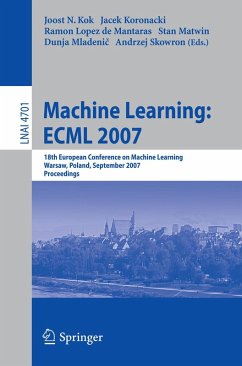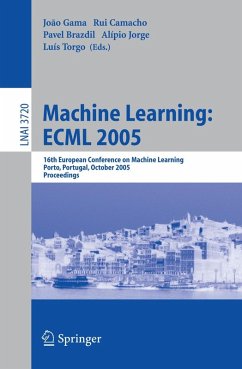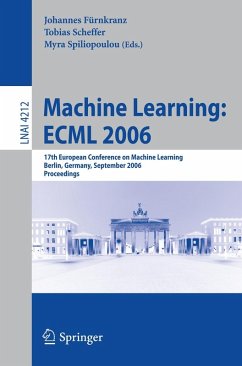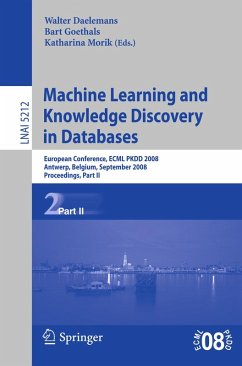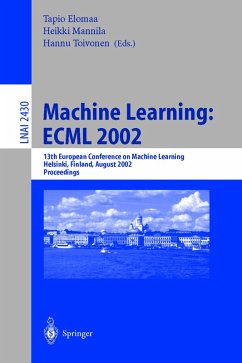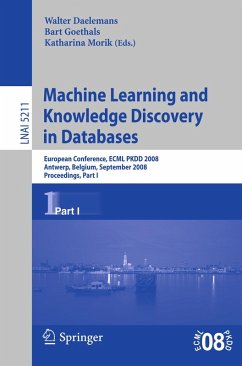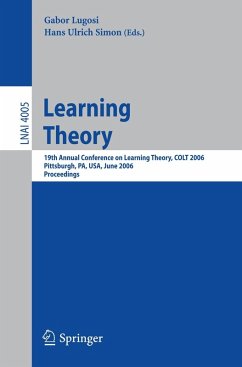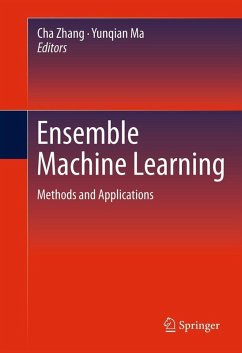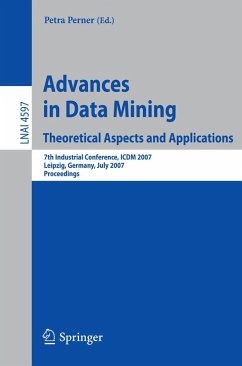
Machine Learning: ECML 2004 (eBook, PDF)
15th European Conference on Machine Learning, Pisa, Italy, September 20-24, 2004, Proceedings
Redaktion: Boulicaut, Jean-Francois; Pedreschi, Dino; Giannotti, Fosca; Esposito, Floriana
Versandkostenfrei!
Sofort per Download lieferbar
40,95 €
inkl. MwSt.
Weitere Ausgaben:

PAYBACK Punkte
20 °P sammeln!
Machine Learning: ECML 2004 (eBook, PDF)
Dieser Download kann aus rechtlichen Gründen nur mit Rechnungsadresse in A, B, BG, CY, CZ, D, DK, EW, E, FIN, F, GR, HR, H, IRL, I, LT, L, LR, M, NL, PL, P, R, S, SLO, SK ausgeliefert werden.




